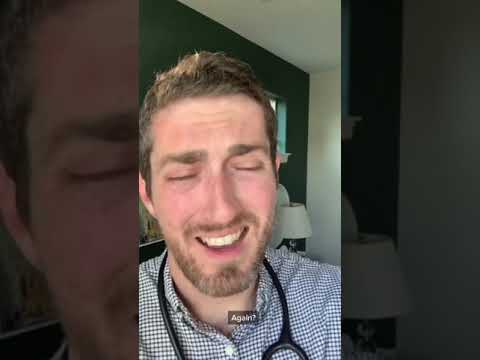Lucrative Ophthalmologist Careers: Job Description & Salary

Ophthalmologist Job Description Template
Ophthalmologist Job Description An ophthalmologist is a medical doctor who specializes in eye care. They diagnose and treat various eye conditions and diseases, as well as perform eye surgeries when necessary. Ophthalmologists are highly trained professionals who have completed extensive education and training in the field of ophthalmology. One of the key responsibilities of an ophthalmologist is to conduct comprehensive eye examinations to assess the patient’s vision and overall eye health. They use specialized equipment and techniques to evaluate the eyes, check for any abnormalities, and determine the appropriate course of treatment. They may prescribe corrective lenses, medications, or recommend surgery if needed. Ophthalmologists also play a crucial role in diagnosing and managing eye diseases such as glaucoma, cataracts, macular degeneration, and diabetic retinopathy. They work closely with other healthcare professionals to develop treatment plans and provide ongoing care for patients with these conditions. They may also collaborate with optometrists to ensure the best possible eye care for their patients. Additionally, ophthalmologists perform surgical procedures to correct vision problems or treat eye diseases. These may include cataract surgery, LASIK surgery, corneal transplants, and retinal surgeries. They are skilled in using advanced surgical techniques and technologies to achieve optimal outcomes for their patients. Two important qualities for an ophthalmologist are precision and compassion. Precision is essential in performing accurate diagnoses, performing surgeries, and prescribing treatments. Compassion is crucial in providing emotional support to patients, especially those with serious eye conditions or undergoing surgical procedures. Ophthalmologists must also have good communication skills to effectively explain diagnoses, treatment options, and provide recommendations to their patients. In conclusion, ophthalmologists play a vital role in ensuring the health and well-being of their patients’ eyes. They possess the knowledge, skills, and expertise to diagnose, treat, and manage various eye conditions. Their commitment to precision, compassion, and effective communication makes them valuable members of the healthcare team.Ophthalmologist Responsibilities
Ophthalmologist Requirements
How Much Does A Ophthalmologist Make?
Ophthalmologist Salary
| Experience Level | Average Annual Salary |
|---|---|
| Entry-Level | $180,000 |
| Mid-Career | $250,000 |
| Experienced | $350,000 |
| Late-Career | $400,000 |
An ophthalmologist is a medical doctor specialized in eye care, diagnosing and treating eye diseases, and performing eye surgeries. The salary of an ophthalmologist varies based on their experience level. Entry-level ophthalmologists earn an average annual salary of $180,000, while mid-career ophthalmologists earn around $250,000. Experienced ophthalmologists can earn up to $350,000 per year, and those in the late-career stage can earn about $400,000 annually. These figures may vary depending on factors such as location, employer, and individual expertise.
Ophthalmologist Salaries by Country
Top Paying Countries for Ophthalmologists
| Country | Average Salary (USD) |
|---|---|
| United States | $360,000 |
| Switzerland | $326,000 |
| Australia | $270,000 |
| Norway | $259,000 |
| Canada | $253,000 |
Ophthalmologists in the United States earn the highest average salary among all countries, with an average of $360,000 per year. Switzerland follows closely with an average salary of $326,000. Australia, Norway, and Canada also offer high salaries for ophthalmologists, with average earnings ranging from $253,000 to $270,000. These countries provide lucrative opportunities for ophthalmologists, reflecting the demand for specialized eye care services and the advanced healthcare systems in place. Ophthalmologists in these top paying countries can expect to be rewarded for their expertise and dedication in the field.
A video on the topic Ophthalmologist
Video Source : Dr. GlaucomfleckenInterview Questions for Ophthalmologist
1. What is the role of an ophthalmologist?
An ophthalmologist is a medical doctor who specializes in the diagnosis, treatment, and prevention of eye diseases and disorders. They perform eye exams, prescribe corrective lenses, and perform surgeries if needed.
2. What are some common eye conditions that an ophthalmologist treats?
Some common eye conditions treated by ophthalmologists include cataracts, glaucoma, macular degeneration, diabetic retinopathy, and refractive errors like nearsightedness and farsightedness.
3. What are the educational requirements to become an ophthalmologist?
To become an ophthalmologist, one must complete a bachelor’s degree, followed by medical school to obtain an MD or DO degree. After medical school, a residency in ophthalmology, which typically lasts 3-4 years, is required.
4. What kind of surgeries does an ophthalmologist perform?
An ophthalmologist can perform various surgeries, including cataract surgery, LASIK surgery for vision correction, corneal transplantation, retinal detachment repair, and glaucoma surgery, among others.
5. What diagnostic tests do ophthalmologists use?
Ophthalmologists use a range of diagnostic tests, such as visual acuity tests, tonometry to measure eye pressure, retinal imaging, optical coherence tomography (OCT), fluorescein angiography, and visual field tests.
6. How often should someone visit an ophthalmologist for an eye exam?
It is generally recommended that adults visit an ophthalmologist for a comprehensive eye exam every 1-2 years, or as advised by their eye doctor. Individuals with existing eye conditions may require more frequent visits.
7. Can an ophthalmologist prescribe glasses or contact lenses?
Yes, ophthalmologists can prescribe both glasses and contact lenses. They can determine the correct prescription based on the results of an eye exam.
8. What are some preventive measures individuals can take to maintain good eye health?
To maintain good eye health, individuals should protect their eyes from UV radiation by wearing sunglasses, follow a healthy diet rich in antioxidants, avoid smoking, take regular breaks from screen time, and practice proper eye hygiene.
9. What are the symptoms that indicate the need for immediate attention from an ophthalmologist?
Symptoms that indicate the need for immediate attention from an ophthalmologist include sudden vision loss, severe eye pain, eye injuries, persistent eye redness or irritation, sudden appearance of floaters or flashes of light, and double vision.
10. What advancements in ophthalmology are you excited about?
I am excited about advancements in technologies such as robotic-assisted surgery, gene therapies for inherited eye diseases, and the development of new drugs and treatments for conditions like age-related macular degeneration and glaucoma.
The Best Universities For The Ophthalmologist Profession.
Frequently asked questions about Ophthalmologist
What is an ophthalmologist?
When should I see an ophthalmologist?
What can I expect during an eye exam with an ophthalmologist?
What are some common eye conditions treated by ophthalmologists?
– Cataracts: a clouding of the lens in the eye
– Glaucoma: a group of eye conditions that cause damage to the optic nerve
– Macular degeneration: a deterioration of the central portion of the retina
– Diabetic retinopathy: damage to the blood vessels in the retina caused by diabetes
– Retinal detachment: when the retina pulls away from its normal position
– Dry eye syndrome: a condition characterized by insufficient tear production or poor tear quality
– Conjunctivitis (pink eye): inflammation of the conjunctiva
These are just a few examples, and there are many other eye conditions that ophthalmologists can diagnose and treat. If you are experiencing any eye symptoms or have concerns about your eye health, it is important to consult with an ophthalmologist for an accurate diagnosis and appropriate treatment.






